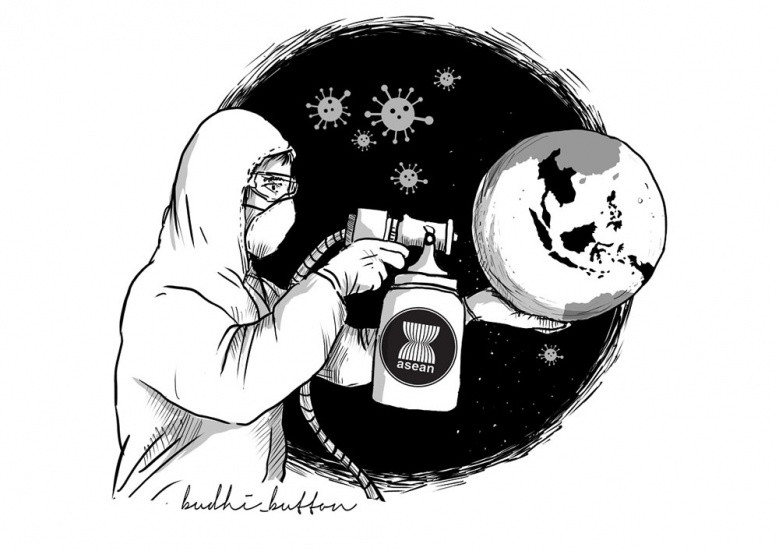Popular Reads
Top Results
Can't find what you're looking for?
View all search resultsPopular Reads
Top Results
Can't find what you're looking for?
View all search resultsWhither ASEAN unity?
As all eyes are glued to the emergency ASEAN Summit on Tuesday, collective efforts must be sped up and all underutilized potential mobilized.
Change text size
Gift Premium Articles
to Anyone
I
t is past due for ASEAN to step up its regional cooperation in the fight against the pandemic. No longer can it rely on its lumbering business-as-usual approach to address a virus that has infected over 18,000 people and killed around 700 in Southeast Asia alone.
As all eyes are glued to the emergency ASEAN Summit on Tuesday, collective efforts must be sped up and all underutilized potential mobilized. As a regional organization, ASEAN needs now to dig deep into its reservoir of mechanisms and tap into its rich experience accumulated over the years, as was the case in the response to the Severe Acute Respiratory Syndrome (SARS) outbreak. However, it still must learn to cut through red tape to make itself immediately useful.
Read also: ASEAN leaders to meet online over COVID-19
A few weeks ago, the group’s humanitarian arm, the ASEAN Coordinating Center for Humanitarian Assistance (AHA Center), was not yet mobilized against COVID-19, with one official saying the agency did not have the mandate to respond. Indonesia, meanwhile, relies on its own National Disaster Mitigation Agency to combat the COVID-19 outbreak at the national level. Such a mentality can no longer be tolerated in a crisis that has deepened in just a few months.
The pandemic has become a veritable stress test for the ASEAN Community, which has been built on the region’s interconnectedness and geographic proximity. The disease has led member countries to put their respective national interests before ASEAN unity and centrality, even though member states are realizing their connectivity far outweighs their differences in the methods, budgets and politics of their COVID-19 responses.
The pandemic has proven that even the most developed and well-prepared nations can still fall victim to the outbreak, even when they focus all the resources they can muster — including those of other countries — on themselves without contributing to a global solution or helping other countries facing similar challenges.
Greater openness and a willingness among ASEAN governments to share invaluable resources are essential in fostering a greater sense of regional connection and community.
Read also: WHO expects Malaysia's coronavirus cases to peak in mid-April
At a time when the multilateral diplomacy of the United Nations and the Group of 20 seems tied down or ineffective, ASEAN must look at this pandemic as an opportunity to prove its relevance as an entity that belongs to and looks after its 650 million-strong population.
To borrow the term that Foreign Minister Retno LP Marsudi has thrown about in the past few years, ASEAN must remain grounded and care for the people most vulnerable to the pandemic, which includes migrant workers, the stateless and other disenfranchised communities. No one can be left behind.
ASEAN needs to recalibrate its use of the principle of the lowest common denominator: if the weakest link continues to be weak, it can break even the strongest chain. If some countries remain less well prepared in facing the heath crisis than others, everyone will inevitably suffer the consequences, in this pandemic and in other contexts as well.
But if ASEAN succeeds in weathering this storm together, it will come out commanding more respect from other countries and, more importantly, the respect of its own people.










